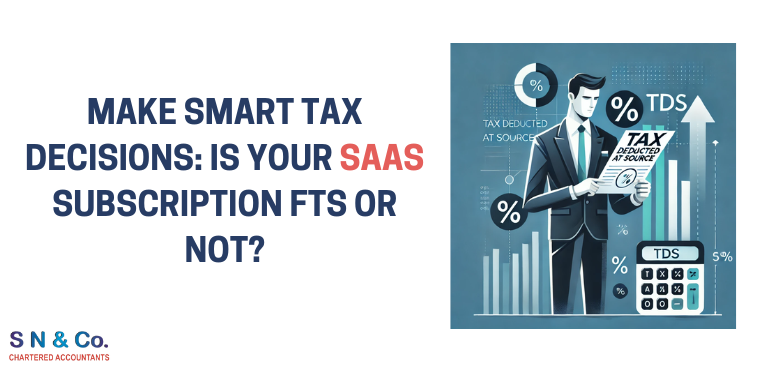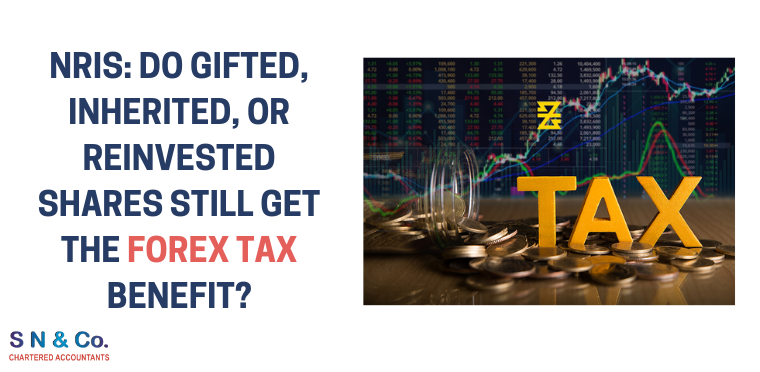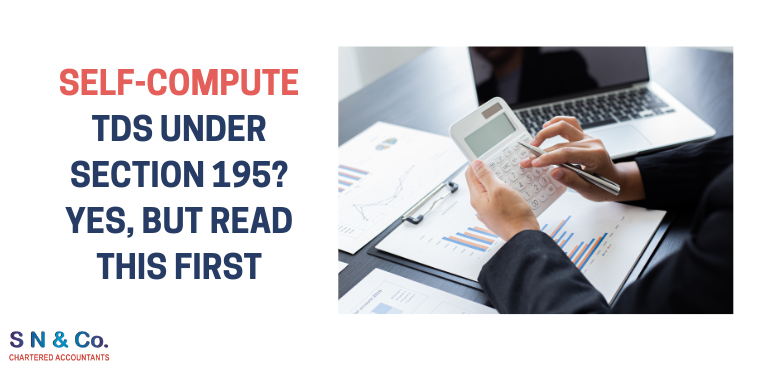SaaS Model: How It Works
Software as a Service (SaaS) is a cloud-based software distribution model that allows users to access applications over the internet without needing to install them on their local systems. SaaS providers host and manage software applications, offering them to customers on a subscription basis.
Key Features of SaaS:
- Cloud-Based Access: Users access applications via web browsers.
- No Installation Required: The software is hosted on remote servers.
- Subscription-Based Pricing: Users pay monthly or yearly fees.
- Automatic Updates & Maintenance: Managed by the service provider.
- Examples: Salesforce, Microsoft 365, Google Workspace, HubSpot.
With the rise of cloud-based software, the question arises: Are payments for SaaS taxable in India? The answer depends on whether the transaction qualifies as Fees for Technical Services (FTS) or an operational expense under Income Tax & DTAA.
Is SaaS Taxable as FTS Under Income Tax & DTAA?
The Income Tax Act (Section 9(1)(vii)) and Double Taxation Avoidance Agreements (DTAAs) determine the taxability of payments for SaaS services.
Key Tax Provisions for SaaS and Cloud Services
1. Fees for Technical Services (FTS) – Section 9(1)(vii)
A payment qualifies as FTS if:
✅ It involves technical, managerial, or consultancy services.
✅ It meets the “Make Available” clause in DTAA provisions.
Example: If a SaaS provider offers customization, IT training, or consulting, making the user self-sufficient in using the software, the payment qualifies as FTS and is taxable.
2. Operational Expense (Not Taxable in India)
A payment is classified as an operational expense (not taxable) if:
✅ It is for general access to a shared cloud-based resource.
✅ It does not make technical knowledge available.
Example: Paying for Salesforce CRM access does not involve knowledge transfer, making it a non-taxable operational expense.
Understanding the “Make Available” Clause in DTAA
Many DTAAs specify that payments for technical services are taxable only if they “make available” technical knowledge that allows the payer to use it independently.
Example of Taxability Under “Make Available” Clause
🔹 Taxable as FTS:
- A SaaS provider trains an Indian company to set up and maintain cloud servers independently.
- Since the training imparts technical knowledge that enables the Indian company to perform the task independently, the payment qualifies as FTS and is taxable.
🔹 Not Taxable as FTS:
- An Indian company subscribes to AWS cloud storage without receiving technical training.
- Since no knowledge is transferred, the payment does not qualify as FTS and is not taxable.
Practical Scenarios of SaaS Taxation
Scenario 1: SaaS Subscription for CRM
Facts:
- XYZ Ltd. (India) subscribes to a cloud-based CRM for ₹10,00,000 annually.
- The subscription provides access but does not provide technical knowledge.
Analysis:
- The payment is for accessing a cloud-based service, not for technical knowledge transfer.
- As per Engineering Analysis (2021), such payments are not taxable as FTS.
Outcome:
✅ XYZ Ltd. does not need to deduct TDS.
✅ It must file Form 15CA (Part D) for non-taxable foreign remittances.
Scenario 2: Customized Cloud Server Setup
Facts:
- ABC Pvt. Ltd. (India) engages a US-based cloud provider to set up a customized cloud server for ₹25,00,000.
- The service includes technical training for the Indian IT team.
Analysis:
- The training meets the “Make Available” clause, making it FTS under the India-USA DTAA.
- The payment is taxable at 10% TDS as per the DTAA.
Outcome:
✅ TDS to be deducted = ₹25,00,000 × 10% = ₹2,50,000.
✅ ABC Pvt. Ltd. must deduct TDS under Section 195 and file Form 15CA/15CB.
Tax Implications for Popular Cloud Services
| Service Type | Example | Taxable? | Reason |
| SaaS | Salesforce, Zoho CRM, HubSpot | Not Taxable | No technical knowledge is transferred. |
| Cloud Storage | AWS, Google Drive, Dropbox | Not Taxable | No technical knowledge is transferred. |
| Customized Cloud Setup | AWS custom server, Google Cloud tailored solutions | Taxable as FTS | Technical knowledge is “made available,” falling under Fees for Technical Services (FTS). |
| Productivity Tools | Microsoft Office, Adobe Suite, AutoCAD | TDS deposited by distributor, user not liable | When purchasing from an Indian distributor (e.g., Microsoft India, Adobe India), if the invoice states that all applicable taxes, including TDS, have been deposited, the end-user is not liable to deduct TDS. The Indian distributor is responsible for compliance. |
Key Takeaways for SaaS and Cloud Taxation
Simplified TDS Flowchart for SaaS Payments

Conclusion
The taxability of SaaS and cloud services depends on the nature of the transaction. Payments for general software access are not taxable, while customized cloud services with knowledge transfer qualify as FTS.
By applying case laws like Engineering Analysis (2021) and DTAA provisions, businesses can optimize TDS compliance and avoid unnecessary tax liabilities.
📢 Need expert guidance on SaaS and cloud service taxation? Contact us for personalized assistance!






